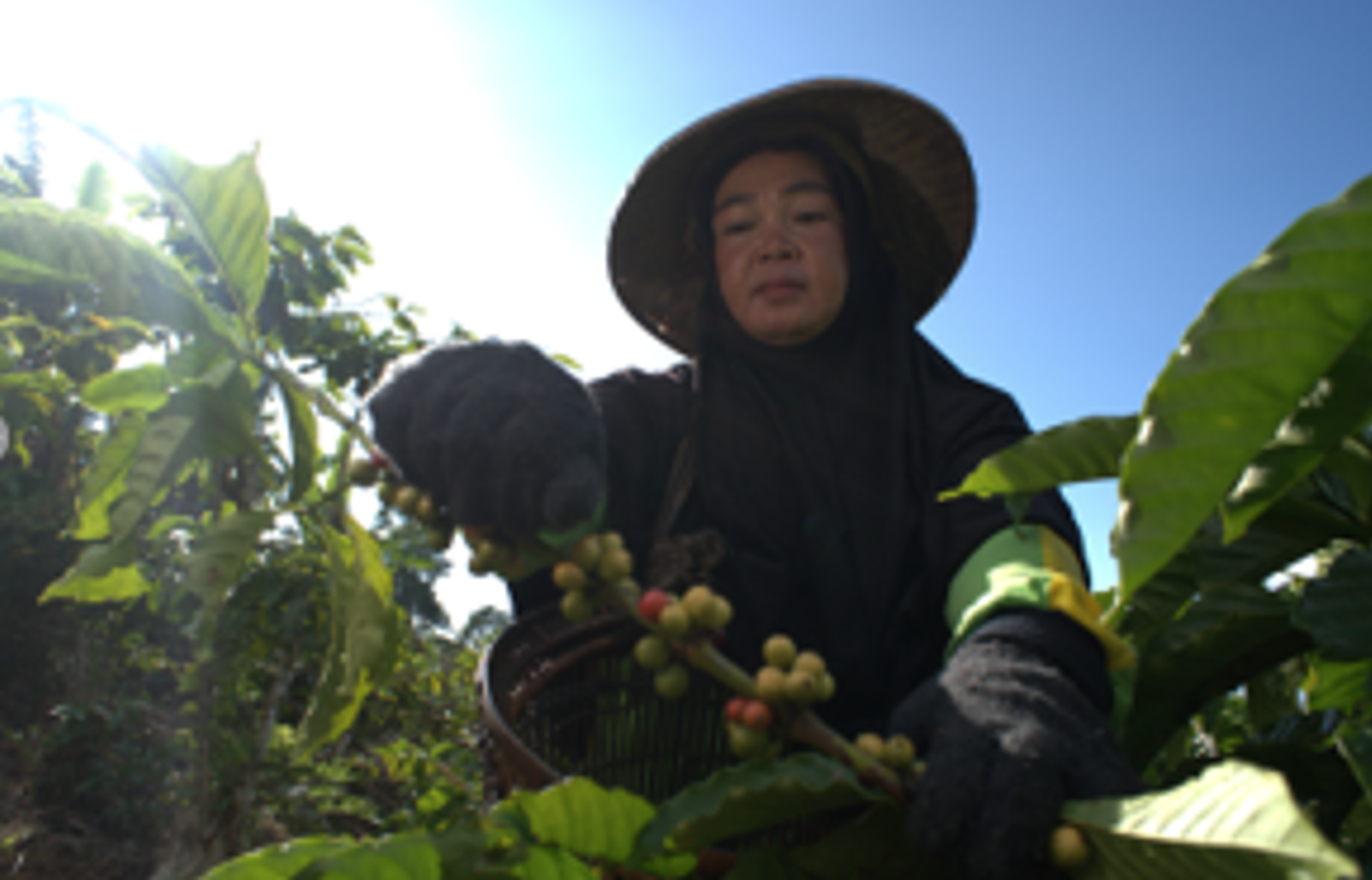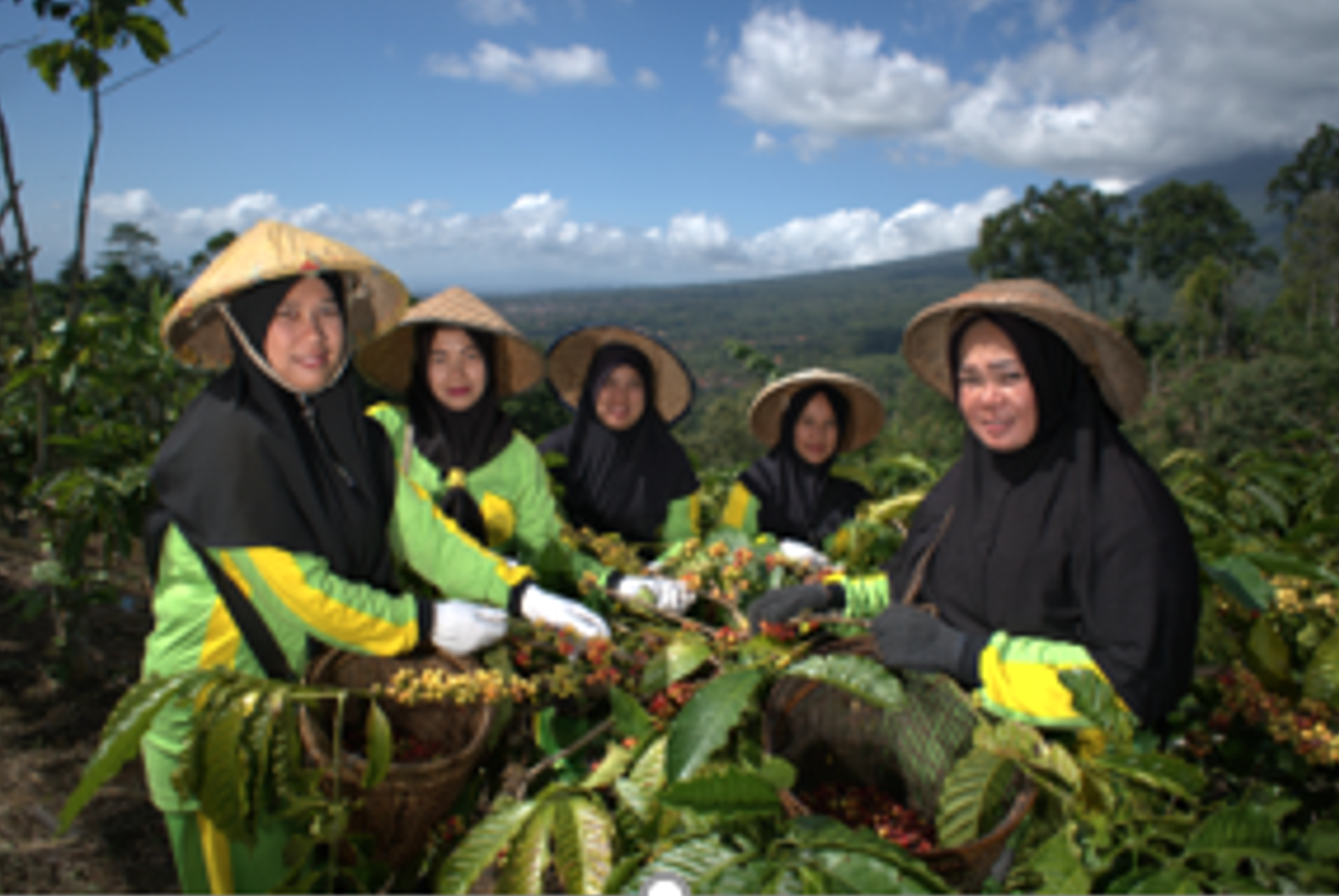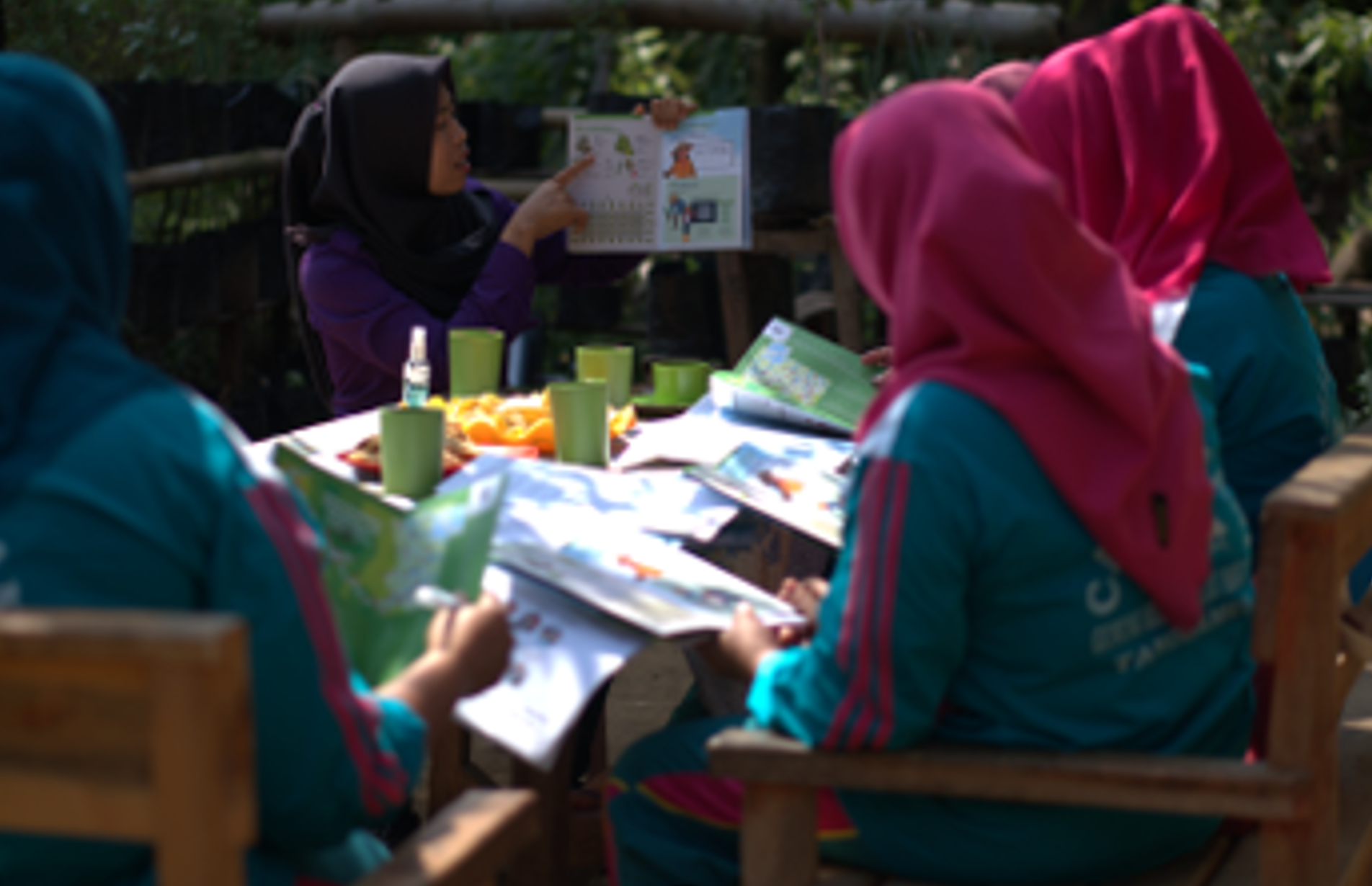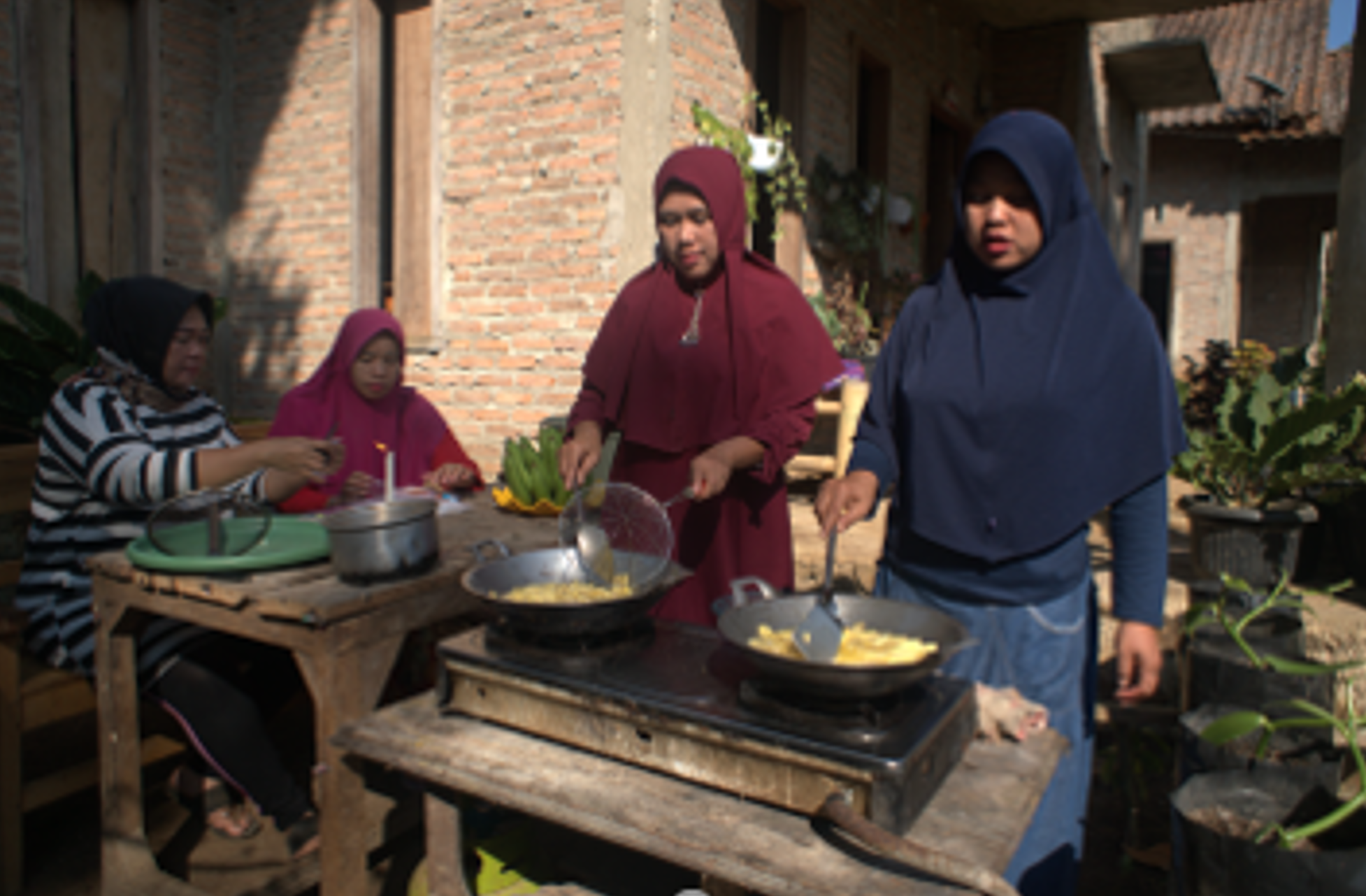Economic Empowerment of Female Smallholder Coffee Farmers in Tanggamus, Lampung Indonesia
It was a sunny day in Gunung Megang Village when a group of females gathered in front yard of a house. Their laughter and voices could be heard from afar. But in between the atmosphere was silenced when they were listening to the explanations from one of the females in the center. She is one of the agronomists from the Coffee+ Project. That day was one of her regular visits to monitor and guide the women smallholder coffee farmers group (WFG) Cahaya Tani in the Gunung Megang Village in Tanggamus, Lampung. Anita, the agronomist, explained about the recommended intercropping method and grafting technique for a coffee plant. The topic then widened as the discussion moved on. They discussed about vegetables that has been recommended by the agronomist to be planted as an added farm activity. All the members of Cahaya Tani WFG recently have grown vegetables in their yard, beside coffee as their main crop and other crops as well in their coffee plantations as part of the coffee intercropping.
“We plant various vegetables in our front yard for our food security and additional income. If the price is good, we could have profit that could be divided among us and even added the cash group’s balance,” said Enita Kusumawati, one of the members of Cahaya Tani WFG. “However, if the income from the vegetables is lacking, we try to produce home food products from our crops such as vegetable chips, and sell them to the shops and food stalls, “Enita added.
Strengthening the capacity of female smallholder coffee farmers and the women’s farmer groups are part of the Coffee+ project’s Agripreneur Development Program (ADP) to improve business and management skills of the smallholder coffee farmers. The activities include Farmer Business School (FBS) training and practicing profitable and sustainable integrated farming system. The Coffee+ Project, a joint development partnership between Nestlé and GIZ to improve smallholder coffee farming systems in Southeast Asia, including in Tanggamus, Indonesia. This public-private partnership financed by the German Federal Ministry for Economic Cooperation and Development (BMZ) through its develoPPP Program promotes integrated farming with intercropping. It improves the economic situation of smallholder coffee farmers in sustainable ways also by introducing other methods of optimizing land use and diversifying income.
“At the beginning I was asked to join this women farmer group training, and I said yes, I wanted to join and learn,” Enita told her story her activities with Cahaya Tani WFG. We learn together, from not knowing anything until now we have knowledge about efficient farm management and good agriculture practice for better and sustainable yields, Enita explained. For example, we go to our coffee plantations together and pick the coffee well and neatly, based on the recommended techniques of cutting and picking methods from the agronomist to have better quality and additional results in the future.
We are happy and enjoyed in our WFG activities, she expressed her feeling and followed with nodded as agree sign by the other members. The continuous support from the agronomist and the field team through regular monitoring, guidance and group consultation encourage us to improve our farming and economic, diversify our income through several methods from coffee intercropping, vegetable gardening or home agriculture products, explained Enita. And all these efforts will benefit us if we implement the balance of record keeping during the process, she added. “From the FBS training we learned record keeping that I consider this lesson is very important. I always tell the members in our WFG to regularly write down properly and in details all incomes and expenses from all our farming activities including our group’s home food productions. We could analyze and maintain the balance of our financial situation so we could plan better in the future, “If for example my husband is planning to fertilize our coffee, chilies or avocado crops in our coffee intercropping plantation, I have to record how much the expenses and maintain the balance with the income that we had,” explained Enita for further details.
If we could manage our plantation and other farming activities efficiently, resulting better and satisfied results, me and my husband want to add vanilla crop so we could add more income and results, Enita closed her story with her expectation.
Enita is one of the 1,509 female smallholder coffee farmers in Tanggamus who has participated and passed the 5 days of FBS training. Women made up 24% from the total of 6,339 smallholder coffee farmers who received the FBS training from 2018 to 2020. Moreover, Cahaya Tani WFG is part of the 48 Women Farmers Groups of the total of 322 Farmers Groups that were trained and mentored by the Coffee+ project. It aims to empower female smallholder coffee farmers, so they have equal access to control over resources, information, decision making and opportunities to grow.






